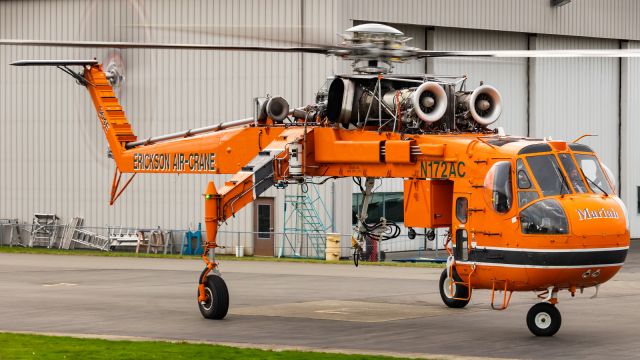모두
 |
|
N172AC —
Comments
Grant...
Awesome pic
Awesome pic
I remember when the Alabama National Guard had these with the "cargo box" attached. Our unit had a all volunteer FTX on a weekend and we boarded and flew from Hamilton, Al to Birmingham and refueled and flew on to Ft. Rucker in South Alabama. It was a cold day in December and it was COLD in that box. Great memory though.
We had one of two of these CH=54 in my First Cav Division when I was in country from November 1967 to December 1968, But I never saw it is action picking up downed Helicopters.The CH-54 Tarhe, also called Skycrane or flying insect, was manufactured by Sikorsky. The nickname Skycrane derives from its heavy load cargo lifting mission. As for insect-it’s a nickname given by pilots for its unusual design. During the Vietnam War this versatile helicopter was used for various missions, including recovery, rescue, infantry transport, medical supply and even armor transport operations.
The CH-54 helicopter is equipped with a crane in the center of the fuselage that is operated by a co-pilot or an engineer from the backside of the pilots’ cabin. The crane operator has an good view of what is happening beneath. The Tarhe demonstrated the very best capabilities in combat, climbing with maximum speed of 100 km/h even being overloaded. During the Vietnam War the CH-54 Tarhe was one of the safest US Army's helicopters to fly. In comparison to the AH-1 Cobra and UH-1 Iroquois the losses of CH-54 helicopters was minimal. Also it was unique by having a tremendous lifting power. In Vietnam War the Skycrane had to cope with loads such as damaged air and ground vehicles. It also took significant role in military engineering projects such as building bridges and fortifications.
The CH-54 has an maximum external payload capacity of 12 t. Its unique shape allowed to handle all kinds of loads. Two engines are located on top of the fuselage and rear landing gear is situated wide. This allows to carry different kinds of containers. This helicopter is also compatible with a universal military cargo pod.
The CH-54 has been retired from the US military service in 1991. However due to its versatility it is still used by some government and civil operators. The CH-54 helicopter is used for civilian purposes such as construction and fire-fighting. NASA is one of the most important operators of this air vehicle.
In 1992 Erickson Air-Crane purchased the manufacturing rights for the Sikorsky S-64, a civil version of the CH-54. This helicopter is still in production.
The CH-54 helicopter is equipped with a crane in the center of the fuselage that is operated by a co-pilot or an engineer from the backside of the pilots’ cabin. The crane operator has an good view of what is happening beneath. The Tarhe demonstrated the very best capabilities in combat, climbing with maximum speed of 100 km/h even being overloaded. During the Vietnam War the CH-54 Tarhe was one of the safest US Army's helicopters to fly. In comparison to the AH-1 Cobra and UH-1 Iroquois the losses of CH-54 helicopters was minimal. Also it was unique by having a tremendous lifting power. In Vietnam War the Skycrane had to cope with loads such as damaged air and ground vehicles. It also took significant role in military engineering projects such as building bridges and fortifications.
The CH-54 has an maximum external payload capacity of 12 t. Its unique shape allowed to handle all kinds of loads. Two engines are located on top of the fuselage and rear landing gear is situated wide. This allows to carry different kinds of containers. This helicopter is also compatible with a universal military cargo pod.
The CH-54 has been retired from the US military service in 1991. However due to its versatility it is still used by some government and civil operators. The CH-54 helicopter is used for civilian purposes such as construction and fire-fighting. NASA is one of the most important operators of this air vehicle.
In 1992 Erickson Air-Crane purchased the manufacturing rights for the Sikorsky S-64, a civil version of the CH-54. This helicopter is still in production.
We had one of two of these CH=54 in my First Cav Division when I was in country from November 1967 to December 1968, But I never saw it is action picking up downed Helicopters.The CH-54 Tarhe, also called Skycrane or flying insect, was manufactured by Sikorsky. The nickname Skycrane derives from its heavy load cargo lifting mission. As for insect-it’s a nickname given by pilots for its unusual design. During the Vietnam War this versatile helicopter was used for various missions, including recovery, rescue, infantry transport, medical supply and even armor transport operations.
The CH-54 helicopter is equipped with a crane in the center of the fuselage that is operated by a co-pilot or an engineer from the backside of the pilots’ cabin. The crane operator has an good view of what is happening beneath. The Tarhe demonstrated the very best capabilities in combat, climbing with maximum speed of 100 km/h even being overloaded. During the Vietnam War the CH-54 Tarhe was one of the safest US Army's helicopters to fly. In comparison to the AH-1 Cobra and UH-1 Iroquois the losses of CH-54 helicopters was minimal. Also it was unique by having a tremendous lifting power. In Vietnam War the Skycrane had to cope with loads such as damaged air and ground vehicles. It also took significant role in military engineering projects such as building bridges and fortifications.
The CH-54 has an maximum external payload capacity of 12 t. Its unique shape allowed to handle all kinds of loads. Two engines are located on top of the fuselage and rear landing gear is situated wide. This allows to carry different kinds of containers. This helicopter is also compatible with a universal military cargo pod.
The CH-54 has been retired from the US military service in 1991. However due to its versatility it is still used by some government and civil operators. The CH-54 helicopter is used for civilian purposes such as construction and fire-fighting. NASA is one of the most important operators of this air vehicle.
In 1992 Erickson Air-Crane purchased the manufacturing rights for the Sikorsky S-64, a civil version of the CH-54. This helicopter is still in production.
The CH-54 helicopter is equipped with a crane in the center of the fuselage that is operated by a co-pilot or an engineer from the backside of the pilots’ cabin. The crane operator has an good view of what is happening beneath. The Tarhe demonstrated the very best capabilities in combat, climbing with maximum speed of 100 km/h even being overloaded. During the Vietnam War the CH-54 Tarhe was one of the safest US Army's helicopters to fly. In comparison to the AH-1 Cobra and UH-1 Iroquois the losses of CH-54 helicopters was minimal. Also it was unique by having a tremendous lifting power. In Vietnam War the Skycrane had to cope with loads such as damaged air and ground vehicles. It also took significant role in military engineering projects such as building bridges and fortifications.
The CH-54 has an maximum external payload capacity of 12 t. Its unique shape allowed to handle all kinds of loads. Two engines are located on top of the fuselage and rear landing gear is situated wide. This allows to carry different kinds of containers. This helicopter is also compatible with a universal military cargo pod.
The CH-54 has been retired from the US military service in 1991. However due to its versatility it is still used by some government and civil operators. The CH-54 helicopter is used for civilian purposes such as construction and fire-fighting. NASA is one of the most important operators of this air vehicle.
In 1992 Erickson Air-Crane purchased the manufacturing rights for the Sikorsky S-64, a civil version of the CH-54. This helicopter is still in production.
|
활동 로그
1998년까지 거슬러 가는 N172AC에 대한 완전한 이력 검색을 원하십니까? 지금 구매하세요. 1시간 이내에 구하십시오.
|
| 날짜 | 항공기 | 출발지 | 행선지 | 출발 | 도착 | 비행시간 |
|---|---|---|---|---|---|---|
| 2025년 6월 11일 | S64 | Bodrum 근처 | Bodrum 근처 | First seen 16:15 +03 | Last seen 16:46 +03 | 0:31 |
| 2025년 6월 2일 | S64 | Uşak 근처 | Bodrum 근처 | First seen 18:08 +03 | Last seen 18:57 +03 | 0:49 |
| 2025년 6월 2일 | S64 | Etimesgut (ANK / LTAD) | Uşak 근처 | 15:46 +03 | Last seen 17:16 +03 | 1:30 |
| 2025년 6월 1일 | S64 | Ankara Esenboğa Havalimanı Int'l (ESB / LTAC) | Etimesgut (ANK / LTAD) | 14:42 +03 | 14:54 +03 | 0:11 |
| 기본 사용자 (기본 사용자가 되는 것은 무료이고 쉽습니다!) 3 months 이력 보기. 참여 | ||||||


Please log in or register to post a comment.